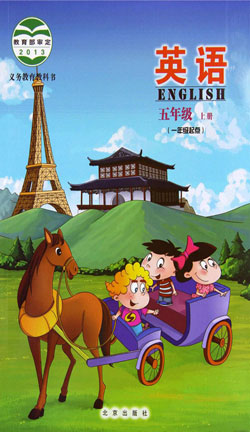UNIT FOUR REVISION课文句子跟读音频
Lesson 13
UNIT FOUR REVISION
第四单元 复习
Lesson 13
第13课
Do you understand?
你明白吗?
Listen and number.
听一听并标一标数字。
Can you talk?
你能说一说吗?
I like singing better.
我更喜欢唱歌。
I sing a lot of songs.
我唱很多歌。
drawing pictures
画画
reading books
看书
Can you write?
你会写吗?
Chinese
语文
English
英语
maths
数学
drawing
画画
fish
鱼
moon cakes
月饼
room
房间
easy
容易的
useful
有用的
interesting
有趣的
sweet
甜的
yummy
美味的
clean
清洗,打扫
bright
明亮的
I like maths because maths is useful.
我喜欢数学因为数学有用。
I like ... because ... .
我喜欢……因为……。
Can you do?
你会做吗?
Help your parents make tangyuan for the Lantern Festival.
帮助你的爸爸妈妈为元宵节做汤圆。
We need:
我们需要:
sticky rice flour
糯米粉
filling: sesame, red bean paste, and Chinese date paste
填充物:芝麻,豆沙和枣糊
sesame
芝麻
red bean
红豆
Chinese date
红枣
Steps:
步骤:
Add water into the sticky rice flour and make a dough.
在糯米粉里加水做成一个面团。
Cut the dough into small pieces and flatten them.
将面团切成小块并把它们弄平。
Put a bit of the filling on a piece of dough and close it up.
放一点填料在一个小面团上并包起来。
Make the whole thing into a ball.
把整个捏成一个球状。
When you finish all the tangyuan balls, cook them in boiling water.
当你做好所有的汤圆,就把它们放进开水里煮。
Write a few sentences to tell about tangyuan.
写几个句子来讲述有关汤圆的事。
Which kinds of filling do you like?
你喜欢哪种填充物?
Which kinds of filling do you like better?
你更喜欢哪种填充物?
What do they taste like?
它们尝起来怎么样?
At which festvial do we eat them?
我们在哪个节日吃它们?
Can you tell more about this festival?
你能告诉我更多关于这个节日的事吗?
Lesson 13
第13课
Can you read and write?
你能读一读,写一写吗?
The noise of firecrackers sends away the old year,
爆竹声中一岁除,
The spring breeze brings warmth into cottages.
春风送暖入屠苏。
The bright rosy sun glows over thousands of houses,
千门万户曈曈日,
New peach wood charms replace the old ones for good luck.
总把新桃换旧符。
As a lonely stranger in a strange land,
独在异乡为异客,
At every holiday my homesickness increases.
每逢佳节倍思亲。
Far away, I know my brothers have reached the peak,
遥知兄弟登高处,
They are planting flowers, but one is not present.
遍插茱萸少一人。
Lesson 13
第13课
Task 1
任务 1
Can you say which holiday each poem is about?
你能说一说每首诗写的是哪个节日吗?
Match it with the festival.
把它和节日连接起来。
Poem 1
诗 1
Poem 2
诗 2
the Mid-Autumn Festival
中秋节
the Dragon Boat Festival
端午节
the Double Ninth Festival
重阳节
the Spring Festival
春节
Tomb-sweeping Day
清明节
Task 2
任务 2
Some poems have rhymes.
有些诗押韵。
Can you pair the following lines?
你能把下面的句子配对吗?
The greatest time of the year,
一年中最伟大的时刻,
Sing hey!
唱啊!
Sing hey!
唱啊!
May all your dreams come true;
祝你梦想成真;
N for neighbours and November,
N代表邻居和十一月,
For Christmas Day.
在圣诞节。
May you have a happy New Year, too.
也祝你新年快乐,
At this nice, joyful time of year.
在一年中这个快乐高兴的时刻。
Nice things, new things to remember.
记住美好的,新的东西。
Lesson 14
Do you understand?
你明白吗?
Listen and number.
听一听并标一标数字。
Can you talk?
你能说一说吗?
We dress up in our best clothes.
我们穿上自己最好的衣服。
October
十月
the national flag
国旗
fireworks
烟火表演
flowers
鲜花
Lesson 14
第14课
Lesson 14
第14课
Can you write?
你会写吗?
It's the Spring Festival.
现在是春节。
We eat jiaozi.
我们吃饺子。
We go to the Spring Festival Fair.
我们去春节晚会。
Can you do?
你会做吗?
Read the steps to make a red lantern.
按照步骤做一个红色的灯笼吧。
Prepare a piece of rectangular red paper.
准备一张长方形的红纸。
Fold the paper in half.
把纸对半折。
Use scissors to cut along the folded edge, but not all the way to the end.
用剪刀沿着折叠边缘剪,但不剪到最后。
Unfold the paper.
把纸展开来。
Take the two ends of the paper and roll it to make around tube shape.
取纸的两端,卷成管的形状。
Put the two ends together and tape the top and bottom edge.
将两端叠在一起,并粘住顶部和底部的边缘。
Cut off another piece of paper to make a handle.
剪下另一张纸做拉手。
Tape the handle to the inside of the top of your lantern.
用胶带将拉手粘在灯笼顶部的内侧。
Now make another one.
现在再做一个。
You may hang the two lanterns above the door to celebrate our National Day.
或许你可以把这两个灯笼挂在门上,以此庆祝我们的国庆节。
Can you read and write?
你能读一读,写一写吗?
Good and Bad Foods
好的和坏的食物
A well-known saying goes "You are what you eat".
一个著名的谚语说“你吃什么就是什么”。
It really means that if you eat good foods, you will be healthy.
这真的意味着,如果你吃好的食品,你会健康。
If you eat bad foods, like potato chips, you certainly will not be healthy and fit.
如果你吃像薯条这样不好的食物,你肯定不会很健康。
Which foods are good for you?
哪些食物对你有好处呢?
the basics for healthy living
健康生活的基础
You should start with fresh foods.
你应该从吃新鲜的食物开始。
Vegetables will do you good, and so will fruits and grains.
蔬菜对你有好处,水果和谷物也一样。
You should eat more carrots, broccoli, celery, and other healthy fresh foods.
你应该多吃胡萝卜,西兰花,芹菜和其他新鲜的健康食物。
Bad foods will not make you sick, but you should not eat too much.
不好的食物不会使你生病,但是你不应该吃太多。
Too many cakes, soft drinks, salty foods, and fatty foods will do you harm.
太多的蛋糕,软饮料,咸的食物,富含脂肪的食物会对你有害处。
Lesson 14
第14课
Task 1
任务1
Read and choose.
读一读并选一选。
More than one of these answers are correct.
不止一个答案是正确的。
What are the best foods for you?
什么食物是对你最好的?
Vegetables.
蔬菜。
Grains.
谷物。
Candy.
糖果。
Burgers.
汉堡包。
Which of the following is bad for you?
下面哪些是对你有坏处的?
Vegetables.
蔬菜。
Fresh fruits.
新鲜水果。
Coke.
可乐。
Hamburgers.
汉堡包。
Which of these are good for you?
哪些对你有好处?
Apples.
苹果。
Pears.
梨。
Sweet potatoes.
红薯。
Broccoli.
西兰花。
Fatty foods.
富含脂肪的食物。
Salty foods.
咸的食物。
Task 2
任务2
What do you usually have for breakfast, lunch, and dinner?
你早餐,午餐,晚餐通常吃什么?
In the morning, I usually have ______ for breakfast.
在早上,我早餐通常吃______。
I have lunch at school.
我在学校吃午餐。
We have different kinds of food on different days.
我们每天吃不同的食物。
Sometimes we have ______, and sometimes we have ______.
有时我们吃______,有时我们吃______。
My favourite dish is ______.
我最喜欢的菜肴是______。
Every day when I get home, my mum makes me a nice dinner.
每天当我回家时,我妈妈会给我做大餐。
We usually have ______.
我们通常吃______。
Progress check
检查点
I can understand what people talk about in each Listen and say.
我可以明白人们在每一个听一听并说一说里谈论的是什么。
I can say what I like better or best.
我可以说我更喜欢的是什么,最喜欢的是什么。
I know how to say "no" in a polite way.
我知道怎么用礼貌的方法说“不”。
I can talk about activities and foods for some holidays.
我会说关于节日的活动和食物。
北京版五年级上册英语UNIT FOUR REVISION单词跟读音频
单词跟读must
brother
pass
draw
English
maths
art
difficult
subject
breakfast
driver
dinner
busy
early
tall
pay
supermarket
meat
juice
cousin
brave
friend
basketball
baseball
with
forget
panda
fast
morning
river


 切换教材
切换教材